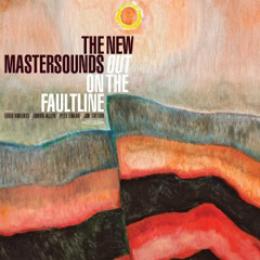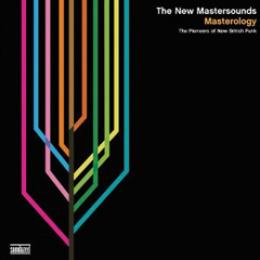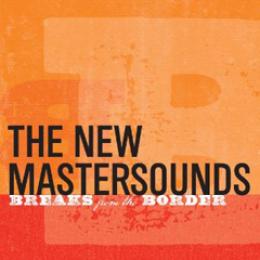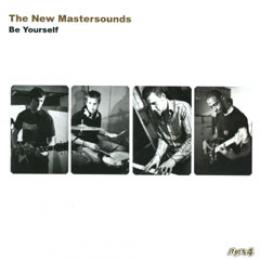 “Where were started out there was a big funk and soul scene in Leeds. We knew that when we played we had to keep it going, to keep people dancing, and we made sure we did that, so everyone was already up when the next DJ took over. It was a great apprenticeship. But when we first hit America, 10 years ago, there were no DJs on the bill. We were the whole night, and we had to keep it all going by ourselves.”
“Where were started out there was a big funk and soul scene in Leeds. We knew that when we played we had to keep it going, to keep people dancing, and we made sure we did that, so everyone was already up when the next DJ took over. It was a great apprenticeship. But when we first hit America, 10 years ago, there were no DJs on the bill. We were the whole night, and we had to keep it all going by ourselves.”
That mantra of keeping people moving is still evident throughout Therapy. The New Mastersounds always bring the funk and the legendary Meters from New Orleans have long been an influence on their style. The band always begins their live sets with a Meters-style tune, and here they pay very direct homage with “Monday Meters.”
So it’s no surprise that New Orleans has wholeheartedly embraced the band. Over the last six years they’ve developed the tradition of playing at the House of Blues in the Big Easy during the second weekend of Jazzfest, shows that always fill the house.
And America is where they’ve found a spiritual home – a literal one for Roberts, too, who moved to the US three years ago. A decade has passed since they played their first US show in Chicago, and with Therapy coming out and a big tour, they’re making the anniversary into a celebration.
How much of a celebration? They even recorded the album in America, in Littleton, Colorado. As Roberts notes,
“The set-up was perfect for us. They had plenty of vintage gear, with great amps and keyboards, and it was big enough that we could all be in the same room. We often write in the studio. I’ll have an idea recorded on my phone, we’ll spend a couple of hours working it up into something, and then we’ll press record. We’ve always been very in-the-moment, but this gave us plenty of freedom.”
Although they’re mainly an instrumental unit, they’ve often used guest vocalists for occasional songs (old Leeds friend Corinne Bailey Rae sang on an earlier record and keyboard player Joe Tatton returned the favor by playing on her albums). This time out they brought in Denver native Kim Dawson, whose soulful pipes soar on “I Want You To Stay” and “Soul Sista,” creating a very ‘70s vibe in the music.
It’s a feel that returns in the final cut, a slightly tongue-in-cheek cover of the Bruno Mars hit “Treasure.”
“We knew we needed twelve songs, and our drummer, Simon Allen, asked fans on our Facebook page to suggest something we could do. “Treasure” won out. I thought it would be good to record it in an old George Benson style, with the guitar playing the vocal melody line. We had a finished take in half an hour.”
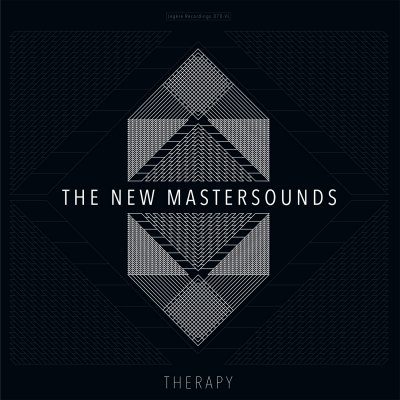 That idea of making their supporters part of the process is typical of the way the New Mastersounds work. They like to be inclusive, to bring people in, to make them feel a part of it all. It’s something that harks back to how they began in the dance music scene and it remains evident in the way they are onstage.
That idea of making their supporters part of the process is typical of the way the New Mastersounds work. They like to be inclusive, to bring people in, to make them feel a part of it all. It’s something that harks back to how they began in the dance music scene and it remains evident in the way they are onstage.
“We’re light-hearted in the way we interact with the audience, we don’t take ourselves too seriously. The crowd give us energy, we give it back, and it creates a spiral that’s great for everyone.”
Over the course of 15 years and nine albums the band has developed, of course. There’s more jazz in the sound now, along with the sophistication that comes with age. But the core remains the same. And Roberts, who produces all the discs, hasn’t forgotten the spirit that was there at the beginning.
“I still love the feel of that first album, it’s so raw and direct, and I tried to capture that on the opener, “Old Man Noises.” But on other pieces you can hear how we layer things and build them.”
Those layers are subtle, and at the heart of it all is the rhythm, in the pocket and natural, as Allen and bassist Pete Shand enjoy a near-telepathic communication. Roberts himself occupies a dual role, with plenty of rhythm playing as well as leads and solos, with Tatton’s keyboards “the icing on the cake.”
They’ve come a long way, but they’ve never forgotten the lessons they learned starting out, that need to keep the dancefloor happy. Both albums and live sets are very carefully programmed for maximum effect, and to ensure the momentum never stops. And the close ongoing involvement in the dance scene is evident in the fact that they’ve always also pressed copies of their albums on vinyl.
“It doesn’t make money, but it has a knock-on effect. With the resurgence in vinyl, the people who buy are often the trendsetters. And we’ve started our own label, Dumaine Records, to put out our material in the US. Both the LP and the CD are coming out on Record Store Day.”
And Therapy is very aptly titled.
“Music, and the creation of music, has always been my therapy,” Roberts observes. “It’s been a way of working through ideas, feelings, frustrations. In creating music, especially instrumental music, it is an incredible outlet for pent-up emotions. And,” he adds, “dancing is therapy, too.”


